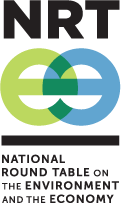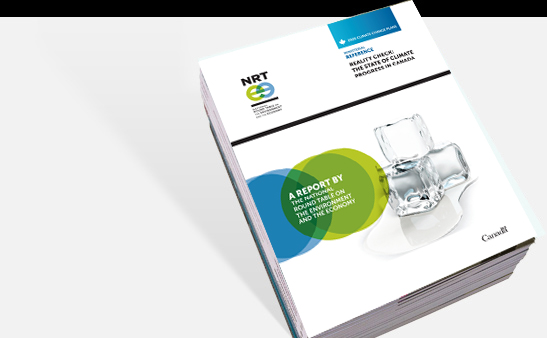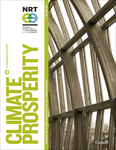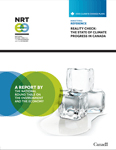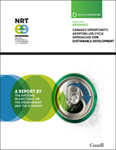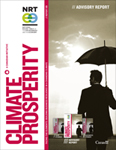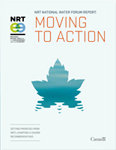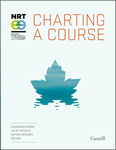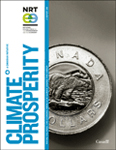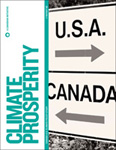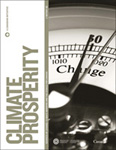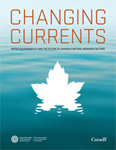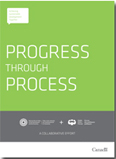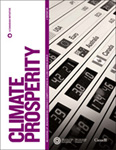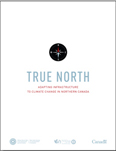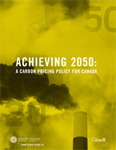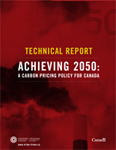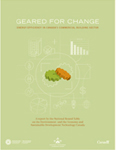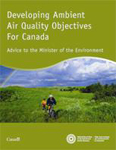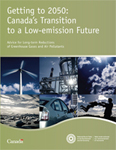Water Governance and Management Session – London, Ontario – June 1, 2011
This event is part of a national initiative from the National Round Table (NRT) looking into the sustainable use of water by the natural resource sectors, namely energy, agriculture, forest products and mining. The purpose of this meeting is to seek input into our research findings and conclusions, with a view to inform the NRT’s recommendations in its upcoming report this fall. The NRT water program is focused on the broad issue of water governance and management, and within this context we are looking at policy instruments, governance structures and information requirements. In accordance with the NRT’s mandate of looking at both environmental and economic considerations of issues of national importance, the recommendations in our report are intended to be supportive of economic growth while at the same time ensuring the health and resilience of Canada’s ecosystems.
The meeting and discussions will focus on three components of our research:
1. forecasts of water use trends related to the natural resource sectors;
2. potential implications of water pricing on water use; and,
3. potential of collaborative governance approaches.
Photos
Meeting Agenda
London, Ontario
Ivey Spencer Leadership Centre, 551 Windermere Road
June 1, 2011
12:00 – 4:30
| Welcome & Overview of Meeting Objectives |
| Setting the Context: NRT Water Program |
Water Forecasts
|
Water Pricing
|
Collaborative Water Governance
|
| Wrap-up and Closing Remarks |
NRT Water Program Overview
The NRT is providing guidance on water policy and strategies that will ensure the sustainable use of water by the natural resource sectors in Canada. This report is the continuation of research documented in our 2010 report Changing Currents. The outcome of the NRT’s current research and advice is to assist policy makers, water managers and the sectors themselves in improving water efficiency and conservation, with the overall goal of reducing water demands in the future, ensuring adequate flows for the environment, and thus avoiding future conflicts over water.
The NRT is providing insights and advice in this report with two policy objectives in mind:
- Improved water conservation – water conservation can be defined as any beneficial reduction in water use, loss, or waste; it often includes water management practices that improve the use of water resources to benefit people or the environment.
- Improved water efficiency – efficient water use includes any measure that reduces the amount of water used per unit of any given activity, without compromising water quality.
The NRT recognizes on-going efforts across the country to modernize and improve existing water policies and legislation. Our findings and conclusions are intended to inform a larger, comprehensive on-going dialogue and debate across this country; as such, the information provided here should be taken within the broader context of integrated water resource management.
NRT Research Focus and Approach
The meeting will discuss three areas under investigation: water forecasts; water pricing; and collaborative water governance. A summary of our focus and the approach taken is provided here as background information for the meeting. Research findings, conclusions and directional recommendations will be provided and discussed with participants at the meeting.
Water Forecasts
Focus
With an expanding economy, and international demand growing for Canada’s natural resources, the natural resource sectors are well positioned to continue to prosper. Recent economic forecasts point to a natural resource sector that will increase in the order of 1.5 times larger in 2030 than today. As the NRT stated in Changing Currents, it is reasonable to expect water use by the natural resource sectors to increase with production levels. To answer the question of just how much water use will rise with production, the NRT sought to obtain national water use forecasts that could shed some light on future water use in the natural resource sectors. No comprehensive and useful information base linking long-term economic growth to water use in Canada currently exists.
Approach
The NRT developed a water intake forecast to 2030 to better understand how a growing economy might impact long-term industrial and agricultural water use. This is important knowledge as knowing future water use demands is central to good water management. It forms the basis of understanding regarding if sustainable water use risks might emerge.
Our forecast of water use out to 2030 is the product of two factors: first, the water use intensity or how much water is required to produce a product; and second, how much the sector will grow, or a forecast of economic production. Our research uses estimates of historical water intake, coupled with a long-term economic forecast, to provide us with one scenario that forecasts potential water demands out to 2030. This is a scenario analysis, based upon modeling which has never been done before in Canada. The results highlight potential water intake trends into the future, and are meant to be illustrative, not definitive, of what might occur with water use in this country.
Water Pricing
Focus
Economic instruments, such as pricing water through a volumetric water charge, are initiatives that have the potential to move water users towards greater efficiency and conservation. In theory, the idea of water pricing has been discussed in Canada for over a decade now, and continues to be a consideration in recent and developing water strategies. However, in researching economic instruments for water management, the NRT found little information on its actual effectiveness and/or efficiency within the context of the natural resource sectors under investigation.
Approach
Using the water forecasts we developed, the NRT conducted new research to determine the potential of water pricing to deliver on efficiency and water reductions objectives. To assess the potential of water pricing, we started with determining the costs that industry currently pays for water intake and use. The total cost of using water includes components of what is paid in licensing fess to provincial governments as well as intake, recirculation and discharge costs that require energy, labour and capital. Having estimated these costs, we then added an additional cost – through a volumetric charge on intake – to determine how industry might respond, and potential impacts to the economy overall. Preliminary results are provided on a sectoral and regional basis.
Collaborative Water Governance
Focus
A number of Canadian jurisdictions have developed province or territory-wide water strategies, many of which have resulted in the development of collaborative water governance initiatives, often involving the creation of watershed-based organizations. The emergence of collaborative governance models provides a potential opportunity to improve the way we manage water and brings the flexibility required for addressing regional and local particularities. The structure, function and roles of these groups vary across Canada. The NRT wanted to better understand these differences, and explore how such initiatives might be used more in the future.
Approach
Our research was informed through a series of four regional workshops held in Alberta, British Columbia, Nova Scotia and Québec, and involved a broad range of stakeholders involved in collaborative water governance including governments of all levels, non-governmental organizations, natural resources sectors and other interested citizens.
Within these regional workshops we discussed:
- benefits and challenges of current collaborative water governance approaches;
- government and industries’ changing roles in water governance and management, and how a collaborative governance process might deal with these changes; and
- circumstances under which collaborative water governance might be appropriate.
Findings from the workshops provided insights into what works, what doesn’t and how such initiatives could be improved upon in the future.
Participants
Jill Baker
Senior Policy Advisor
National Round Table (NRT)
Katherine Balpataky
Communications Specialist
Grand River Conservation Authority
Maury Burton
Department Manager, Regulatory Affairs
Bruce Power
Leslie Coates
Policy Advisor, Lawrence National Centre for Policy and Management
Richard Ivey School of Business
University of Western Ontario
Bernadette Conant
Executive Director
Canadian Water Network
Rob de Loë
Professor and University Research Chair in Water Policy and Governance
Associate Dean (Research), Faculty of Environment
University of Waterloo
René Drolet
Director, Policy & Research
National Round Table (NRT)
Denise Edwards
Administrative Assistant
National Round Table (NRT)
James Etienne
Senior Water Resources Engineer
Grand River Conservation Authority
Melissa Harris
Chairman of the Advisory Council
Lawrence National Centre for Policy and Management
Richard Ivey School of Business
University of Western Ontario
Christopher Hilkene
NRT Member
National Round Table (NRT)
Jennifer Keyes
Manager, Great Lakes and Water Policy Section
Ontario Ministry of Natural Resources
Claire Malcolmson
Environmental Defence
Gordon McBean
Director, Policy Studies
Institute for Catastrophic Loss Reduction
Departments of Geography and Political Science, Social Sciences Centre
University of Western Ontario
Don McCabe
Vice President
Ontario Federation of Agriculture
Theresa McClenaghan
Executive Director and Counsel
Canadian Environmental Law Association
Jennifer Moulton
Dan Murray
Research Associate
Water Policy and Governance Group
University of Waterloo
Paul Norris
President
Ontario Waterpower Association
Don Pearson
General Manager
Conservation Ontario
Nic Rivers
Consultant
Hank Rowlinson
Manager, Community Relations
Métis Nation of Ontario
Anthony Watanabe
President & CEO
The Innovolve Group Inc.
